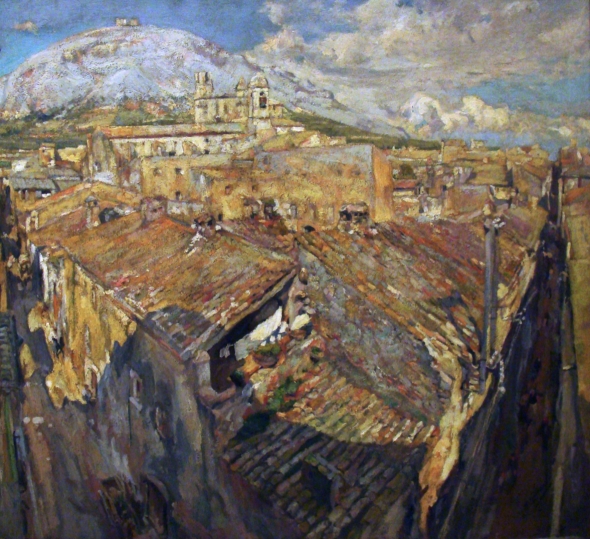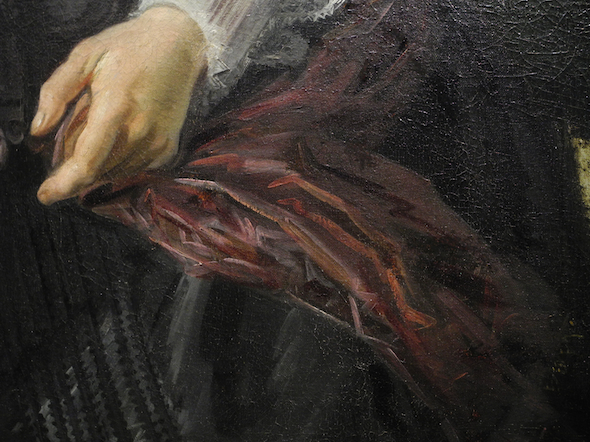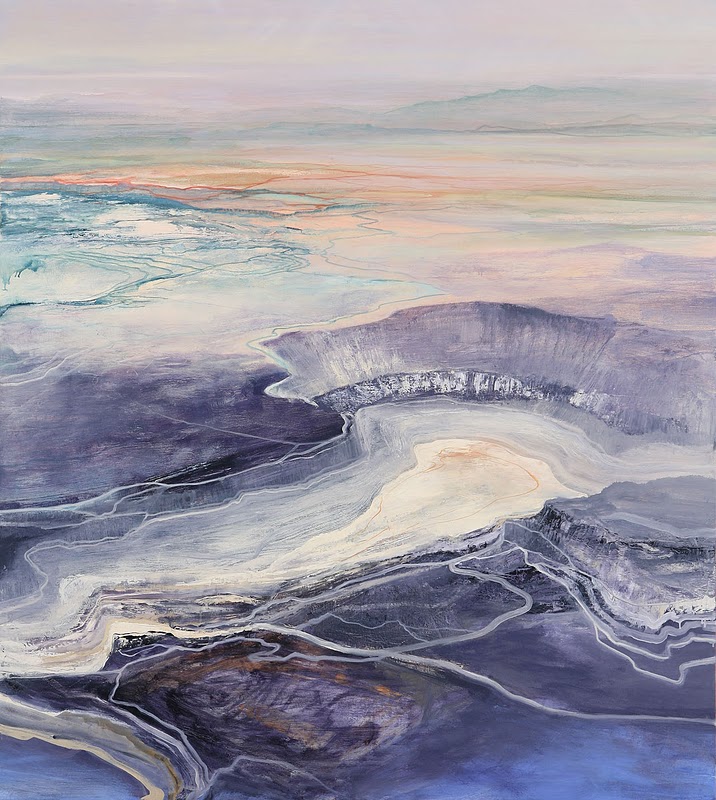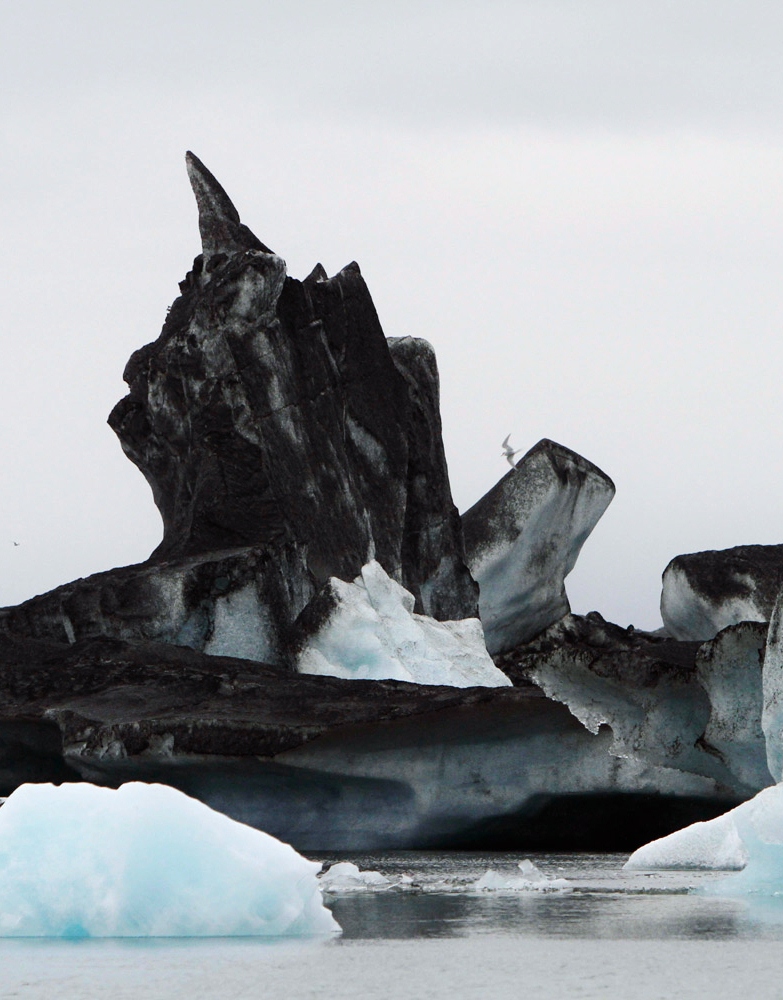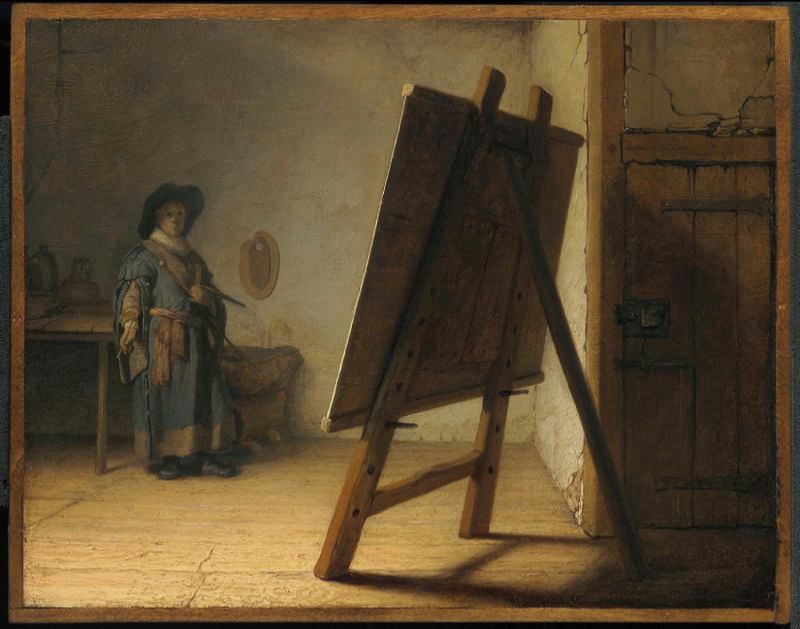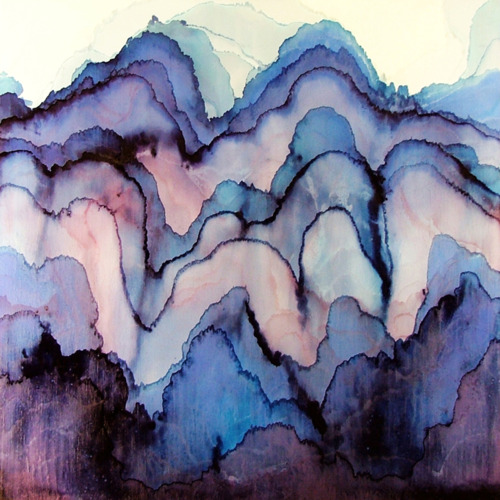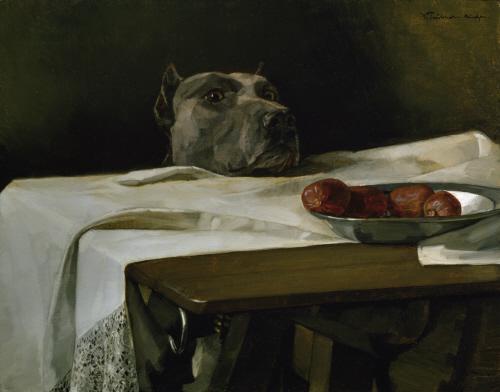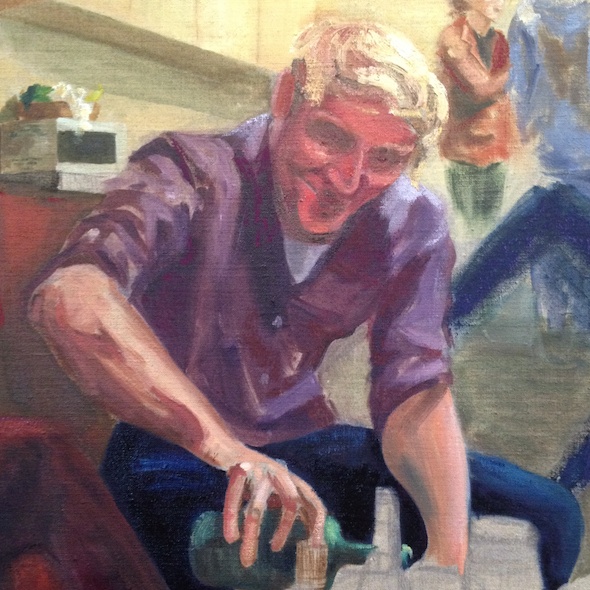
In process…pouring
My friends out there know i am working on this big-assed (it’s a technical term—look it up) painting. It’s the largest piece i’ve ever tackled, and only the second in oil in a long while. While it’s been a joy in many ways, but the sheer size of the piece and the practicalities of working in oil have been…shall i say interesting? I’ve worked on it in fits and starts, and i have to admit that the possibly of screwing up has been a real hindrance. The dry media that i’ve principally been working with the past few years is much more forgiving to mistakes and can be reworked or completely redrawn quickly. I know paint can be painted over, the drying time is frustrating and in many sections i’m trying to preserve the natural color of the linen beneath.
I’ve worked most of the 14 and half foot canvas, but i’ve been dutifully avoiding fully developing certain aspects of the scene knowing that they require my best drawing abilities. All in the center of the canvas, but mentally shoved in the corner. I had set a goal of completing the piece (a stage 1, kind of complete at least) by the end of summer. (The season’s end not the school year’s beginning!) Well, with September well underway it’s long past time stop avoiding and to attack.
To-do list in hand, after much fussing, (obsessively scraping old paint of my pallet, oh Schama’s Power of Art: Rothko on youtube!, i’m hungry, music or audiobook or music or audiobook or music or audiobook…) i finally just jumped in and knocked purple shirt’s head out. I was uncertain how if felt about the result, but snapped a pic after and called it a night. The next morning i returned to my studio and while i knew the section would require further work, i exclaimed “It doesn’t suck!”.
It’s moments like that keep me working.
And once again, the moral of the story is to just step up and face your fears and just get working.
Goddamnit. There goes that excuse.
